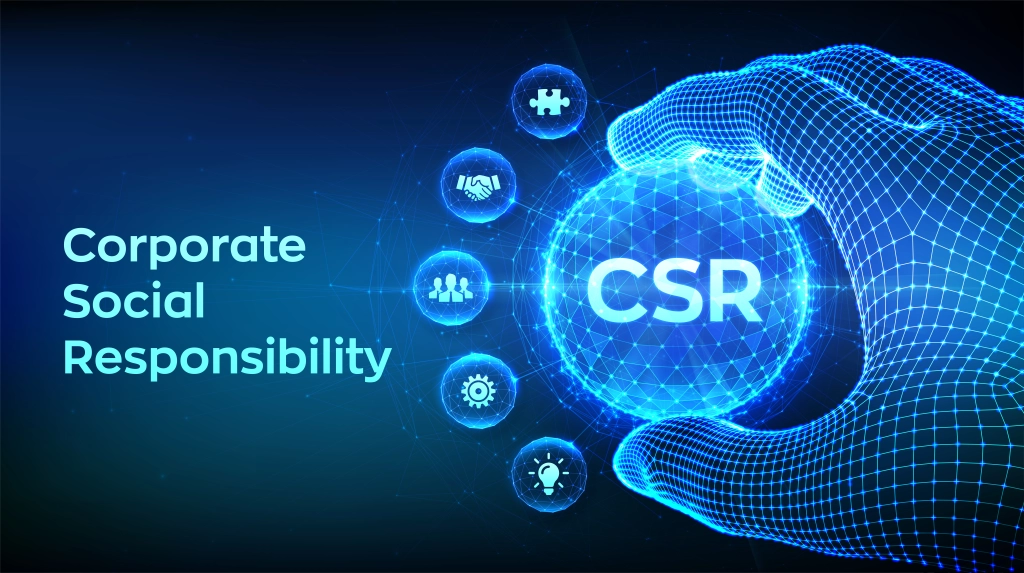
Businesses and corporations have a responsibility to better the society that surrounds them. This responsibility is called corporate social responsibility (CSR). This concept is part of a trio of principles that businesses should follow. As summarized by a Harvard Business School article, these principles are “profit, people, planet” (Stobierski, 2021). A company should care about profits but also about empowering and bettering the lives of customers and employees, as well as assisting in conserving the natural environment of the planet.
A lot of companies adopt a public CSR stance to appear socially responsible and environmentally conscious to boost profits. Smoke and mirrors tactics are often quickly uncovered by consumers, which can harm the success of a business. Profits will follow if corporations prioritize and invest in CSR, as consumers will also support their efforts. As Alex Edmans, a Professor of Finance at London Business School, states in a TEDx “Corporate social responsibility agrees that profit is good, but profit is only a by-product it’s not the end goal” (Edmans, 2015).

Ben and Jerry’s is a company known for taking public stances on important issues. Ben and Jerry’s Ice Cream started as a small business in Burlington, Vermont in 1978. By 1985, Ben and Jerry’s began their Corporate Social Responsibility (CSR) initiative by funding community projects. They have since taken stances on various issues.
- Against Recombinant bovine growth hormone
- Support of Farm Aid
- Sponsoring a campaign to fight global warming
- Pushing young people to vote
- Speaking out against oil drilling in Alaska
- Support Fair-trade efforts, with expansion of commitment and support of the global movement
- Against animal cloning
- Supporting Occupy Wall Street
- Supports mandatory GMO labeling laws
- Supports equal rights, social reforms, and justice for all
- Supporting change for social injustices (About Ben & Jerry’s)
Ben & Jerry’s faced backlash for labeling their ice cream as “all-natural” despite their commitment to supporting local communities and environmental issues. This backlash was due to the use of certain ingredients that are not considered all-natural, such as “alkalized cocoa, corn syrup, and partially hydrogenated soybean oil.” Additionally, it was discovered that their products contained glyphosate, a herbicide commonly known as Roundup. Ben & Jerry’s shifted their focus to using non-GMO ingredients and reducing chemical use in agriculture. Although Ben & Jerry’s has been involved in incidents that may have come across as unethical or not socially responsible, they have taken swift action to correct those matters and have publicly taken stances against them. According to research, Ben & Jerry’s has shown a willingness to accept criticism and improve their corporate social responsibility practices. As far as one can tell, they have not faced any significant legal consequences for their actions.

Ben Cohen and Jerry Greenfield started worrying about CSR with their first company mission statement stating goals that would improve the quality of lives of local, national, and international communities. Through the growth of the company, they have always maintained the need to have a CEO who understands the company’s values and social responsibility. Cohen himself has publicly stated issues with the way their parent company Unilever, which acquired Ben & Jerry’s in 2000, has handled their inclusion in Ben & Jerry’s CSR process. Therefore, it seems that Ben & Jerry’s is a company that is “green” for the environment and society, rather than just for profits.
Corporate social responsibility can assist companies in creating brand loyalty, recurring customer purchases, and increased profits. Companies must ensure ethical behavior in their CSR activities to avoid alienating consumers and risking their existence.
Reference
About Ben & Jerry’s. https://www.benjerry.com. (n.d.). https://www.benjerry.com/about-us?through-the-decades=tab-2020s
Edmans, A.(2015). The social responsibility of business. TEDX Talks. Retrieved December 8, 2023, from https://www.youtube.com/watch?v=Z5KZhm19EO0&ab_channel=TEDxTalks.
Kroncke, D., & Wyatt, S. (2018). (rep.). (O. C. Ferrell & L. Ferrell, Eds.) Managing Social Responsibility and Growth at Ben & Jerry’s. https://harbert.auburn.edu/binaries/documents/center-for-ethical-organizational-cultures/cases/ben-and-jerrys.pdf.
Stobierski, T. (2021, April 8). What is Corporate Social Responsibility? 4 types: HBS Online. Business Insights Blog. https://online.hbs.edu/blog/post/types-of-corporate-social-responsibility
Unilever, & Beefkidney. (2008). Ben & Jerry’s.svg. Wikipedia. Retrieved December 8, 2023, from https://en.m.wikipedia.org/wiki/File:Ben_%26_Jerry%27s.svg.







Leave a Reply